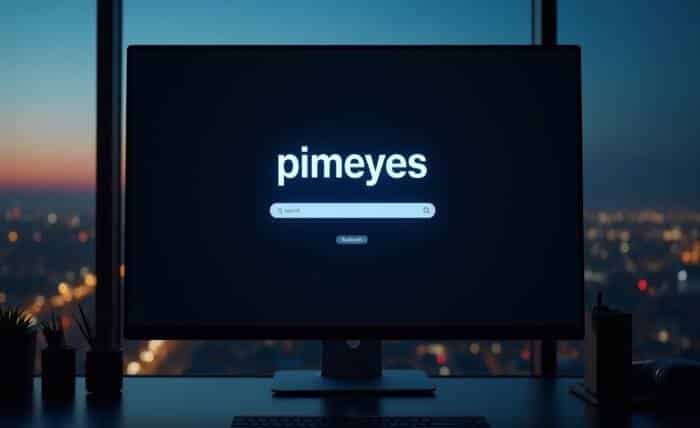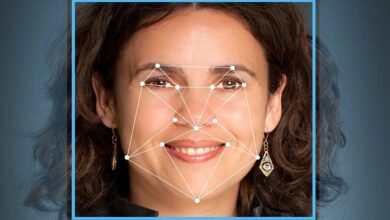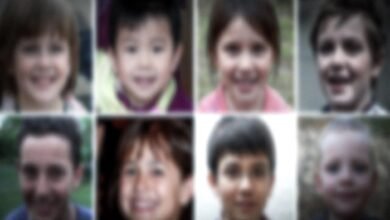How PimEyes Face Search Is Changing Online Privacy and Security

Have you ever wondered how much your face is seen online? I sure have. As a cybersecurity expert, I often look at digital footprints. Tools like PimEyes face search make finding your face online easier but also a bit scary. In this article, I’ll show you how PimEyes face search works.
| Feature | PimEyes Face Search | Regular Search (Words) |
| What you put in | Picture of a face | Words or phrases |
| What it finds | Faces that look alike | Text that matches your words |
| Results | Links to sites with similar faces | Sites with matching words |
| Privacy Effect | Hi, can show many pictures of you | Lower, looks for what you type |
PimEyes face search is quickly changing how we think about online privacy and safety. It can find people online just from a picture. This brings up big questions about permission, who owns your data, and if it can be used for bad things.
1. How PimEyes Face Search Works
As a cybersecurity expert, I see how PimEyes face search uses smart AI for face finding. You upload a picture. The system does not save your photo. Instead, it makes a special “face print.” This print is a math code of your face. Then, the service checks its big list. This list has faces from public websites.
The main idea of PimEyes face search is to quickly check face details. It compares them to billions of pictures it knows. This means one photo of you, maybe from an old blog or news story, could show many other times your picture is online.
2. How It Affects Your Privacy
PimEyes face search truly changes your personal privacy. Now, people can easily find where their face is online. This is true even for places they didn’t know about or agree to. Finding your digital picture trail is a double-edged sword.
This causes big privacy worries. It breaks the idea that you are private in public places. Pictures taken and put online by others can be found instantly. As I’ve often told my clients, this shows we urgently need to be more careful with our pictures online.
3. How Face Search Affects Safety
Besides privacy, PimEyes face search also brings up big safety concerns. If someone can link your face to many online places, they might use it for bad things. This could be identity theft or bothering you online. If a bad actor collects many pictures of you, they might learn a lot about you.
More tools like PimEyes face search mean your face itself can be a risk to your safety. Keeping your face data safe is now as important as protecting passwords and addresses. Knowing these safety risks is vital now that face recognition is so advanced.
4. What People Think About PimEyes
The ethics of PimEyes face search are complex and widely argued. The company says its tool is for personal use. It helps people check their own online pictures. It fights against things like revenge porn or identity theft. But many privacy groups I follow argue a different point.
The ethical problem is balancing self-checking benefits with the risks of widespread face finding. PimEyes face search raises bigger questions for society. How should face data be collected, saved, and used? Finding this balance needs constant talk and clear rules.
5. Law Issues and Rules
PimEyes face search has faced legal problems. This is especially true in Europe. There, strict data privacy laws like GDPR are in place. These rules often need clear permission to use face data. The laws for face recognition are still growing. Countries are struggling with how to control such powerful tools.
| Region | Rules for Face Recognition | Key Laws/Concerns |
| Europe | Strict, needs much permission | GDPR: Face data is “special.” |
| United States | Varies by state, no clear national rule | Privacy laws, talks on business use |
| Other Places | New rules coming, different levels of control | Rules are forming, often like Western ones |
The ongoing legal fights about PimEyes face search show the world’s struggle. They try to fit old laws to new tech. What happens in these cases will surely shape the future of face recognition and online privacy everywhere.
6. How to Keep Your Face Safe Online
Because of what PimEyes face search can do, it’s more important to protect your face online. You can’t fully erase your digital past. But you can show less of yourself. This means thinking about what photos you share publicly and where.
Also, PimEyes face search has an “opt-out” option. This lets you ask them to remove your pictures from search results. This does not remove the original picture from the website. But it stops PimEyes face search from finding it. Controlling your digital image is a constant job in this changing world.
7. The “Opt-Out” Tool and If It Works

PimEyes face search offers an “opt-out” choice. This lets people ask for their pictures to not show up in searches. You usually send a request. This tool gives some control. But its usefulness is often argued among cybersecurity experts.
The main limit is this: opting out of PimEyes face search only removes pictures from their specific list. It does not delete the original pictures from the websites where they live. So, you won’t show up in PimEyes searches.
8. The Future of Face Recognition and Privacy
What PimEyes face search does is just one sign. It shows how fast face recognition tech is growing. As these tools get smarter and are used more, talks about privacy and safety will get louder. We will likely see more use of face recognition in many areas. This includes safety and selling things.
The future will likely push for stronger rules and good ways to use face recognition. People will also need to change how they think about online privacy. Tools like PimEyes face search show how we are changing. They show how digital systems see and know us.
9. PimEyes for Checking Your Own Image Online
PimEyes face search has its debates. But it can be a good tool for checking your own image online. It helps with managing your good name. I’ve used similar tools in my job. They help people and businesses see where their work or personal pictures show up online.
Using PimEyes face search for these reasons helps people take more control over their online selves. It helps find info that would be very hard to find by hand. It’s a smart way to keep a good online image.
10. Other Tools Like PimEyes Face Search
PimEyes face search is well-known. But other reverse image search tools exist. Few are as focused on finding faces across the open web. General reverse image search tools are Google Images, TinEye, and Yandex Images. They let you find similar pictures. But they are not made to find specific faces.
Some new AI-powered picture search tools might do similar things. But they often work in different areas, like special lists or for business use. PimEyes face search is unique because it is public-facing in this way.
11. What “Publicly Available Data” Means
PimEyes face search clearly says it only checks public data. This is important. It means it does not look at private social media profiles or accounts that need a login. But “publicly available” can mean a lot. It includes pictures on news sites, blogs, company profiles, and other open web sources.
The problem is that many people don’t know how many of their pictures are out there on the public internet. PimEyes face search simply gathers this public info. It makes it easier to find. This shows the real privacy risks of any picture shared online without strict controls.
12. What to Do if Your Photos are on PimEyes
If you use PimEyes face search and find your pictures, you can do a few things. First, find the websites where the pictures are. Then, you can contact those website owners directly. Ask them to remove the pictures. You can use privacy worries or copyright as reasons.
It’s important to write down every step. Even if the pictures aren’t taken down right away, acting shows you want to control your picture data. The main thing, as I always tell my readers, is to keep trying. Also, understand your rights about online picture use.
Conclusion
PimEyes face search truly changes online privacy and safety. It offers tools for people to check their digital footprint. But what it can do also brings up big ethics and law questions. As face recognition tech keeps getting better, understanding tools like PimEyes face search is key.
FAQs
Can PimEyes face search find private photos?
No, PimEyes face search only finds public photos online. It cannot reach private images stored on locked or protected websites.
Is PimEyes face search free or paid?
PimEyes face search gives limited free results. Full access and extra tools need a paid plan to unlock more matches and features.
Can I remove images found by PimEyes face search?
Yes, PimEyes face search has a remove tool. You can ask to take down photos if they are on public sites and meet removal rules.




